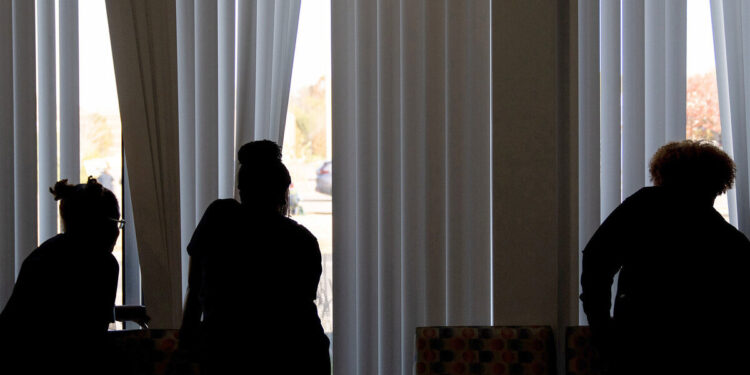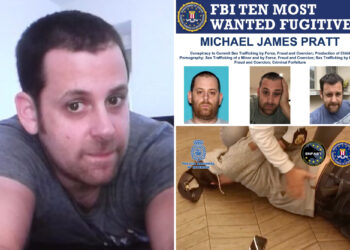One year ago, when the U.S. Supreme Court overturned Roe v. Wade, we immediately wondered what losing the constitutional right to an abortion would mean for people incarcerated in states where the procedure is outlawed.
We knew that finding people to tell these stories would be a challenge. Even before the end of Roe, many correctional facilities had no written policy outlining when and how people in custody could get an abortion. Incarcerated pregnant people also face numerous practical barriers to abortion, such as having to pay for it themselves or cover the cost of an officer escort to the clinic. And because the U.S. is made up of thousands of different state, federal, local and tribal systems, it’s hard to pinpoint how many pregnancies behind bars end in abortion.
So we had to ask ourselves how we would connect with incarcerated people whose communication is limited and monitored. How would we navigate health privacy laws? Why would anyone behind bars risk coming forward about such a personal choice? Who would be willing to tell us about an abortion they wanted but never received?
One answer was to cast a wide net: We talked to formerly incarcerated people, jail nurses, prison doula groups, attorneys, and people who had written to The Marshall Project about their experiences with reproductive care and incarceration.
Although our reporting so far has not surfaced accounts of abortions being denied, those we interviewed talked about the chilling effect of the end of Roe. Today, an estimated 2 in 5 girls and women of reproductive age live in a state where they could be prosecuted for having an abortion. The procedure is already fully banned in 14 states and severely restricted in six others. When clinics close or doctors stop performing abortions, incarcerated people lose access as well. The end of Roe could also mean more people being punished for pregnancies that end in miscarriage or stillbirth.
Perhaps the biggest lesson we learned from our interviews so far is that abortion is just one part of a larger story about the unevenness, indifference — and even cruelty — of reproductive healthcare in jails and prisons. Over the next four weeks of Life Inside, you’ll hear from a formerly incarcerated doula in Georgia who uses her personal history of traumatic pregnancies to help others in jails and prisons. A California prisoner who went to the hospital to have growths removed from her uterus and was sterilized without her knowledge. A Texas woman left cramping and bleeding in her jail cell while she miscarried. And a Minnesota mother who wonders if the year she was allowed to spend with her newborn twins at home will make separation harder when she begins to serve her prison sentence in the fall.
These stories foreshadow a post-Roe landscape in correctional settings where reproductive health care is often an afterthought.
If you’d like to tell your own story about abortion, pregnancy and reproductive rights in prison or jail, get in touch. You can email us at [email protected], leave a voicemail at 212-803-5207, or send a letter to the following address:
Nicole Lewis, Engagement Editor
The Marshall Project
156 West 56th Street
Studio Cityspire – 3rd Floor
New York, NY 10019



























